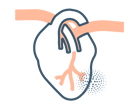Arrhythmogenic Right Ventricular Dysplasia Precision Panel
Arrhythmogenic Right Ventricular Dysplasia (ARVD) is an inherited cardiomyopathy characterized by structural and functional abnormalities in the right ventricle, resulting in ventricular arrhythmias.




